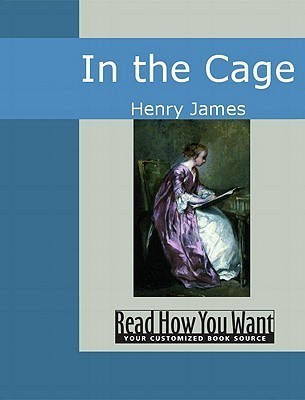What do you think?
Rate this book


Kindle Edition
First published January 1, 1898
Ooh! Considered me hooked!
In the Cage is about a young woman who works as a telegraphist, taking telegrams, processing them, and serving customers. Fun fact: This is one of the only books Henry James writes about a lower-middle class woman. Any who, our unnamed main character (MC) is intelligent and witty but "in the cage" in almost every aspect of her life. Let me explain:
The MC is caged by being a woman as she is limited by the work that is available to her. Her two siblings and ailing mother are all dependent on her salary. She is, also, caged by the work itself, never being able to earn enough to quit or move elsewhere. Lastly, the MC is caged, physically, as her office is behind wiring and a glass pane.
What an interesting metaphor! There are so many layers that are uncovered as the MC gets a little too engrossed in the upper class's daily lives through their telegrams. But, honestly, I'm nosy too, so I don't blame her.
While there is a clear plot as the MC begins to meddle in these upper-class folks' lives, she does what she can to reach beyond the cage and take back what little control she has of her life. In the Cage is very intricate and explores the deeper aspects of social dynamics during the time in which it was written, 1898.
As usual, the lower reviews criticized the reading difficulty, which I agree is not for everyone. Henry James does write with long, complex sentences that can leave you confused. However, I do want to argue that the character development could have been better. I liked the concept, but it didn't deliver the way I would have liked. I would have enjoyed if we saw a bit more about the MC's personal life instead of just her day-to-day work.
Other than that, it is a great book in terms of literary elements, but character-wise, I think it could improve.